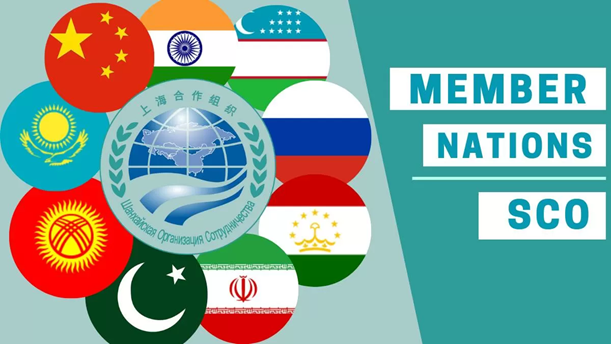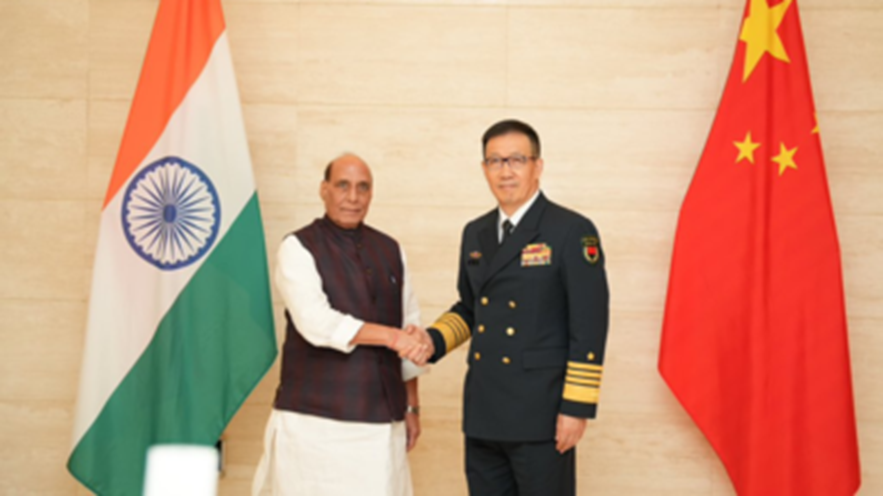Defence Minister Rajnath Singh on Thursday (June 26) refused to sign the draft statement at the Shanghai Cooperation Organisation (SCO) meeting, after the document omitted the reference to the Pahalgam terror attack on April 22, but mentioned the Jaffar Express hijacking in Pakistan in March.
India Refuses To Sign SCO Document Sends 4 Point Message to China
Why In news
- Defence Minister Rajnath Singh on Thursday (June 26) refused to sign the draft statement at the Shanghai Cooperation Organisation (SCO) meeting, after the document omitted the reference to the Pahalgam terror attack on April 22, but mentioned the Jaffar Express hijacking in Pakistan in March.
What Is The SCO
- SCO is a grouping of 10 countries, including India, China, Russia, Pakistan, Kazakhstan, Kyrgyzstan, Tajikistan, Uzbekistan, Iran, and Belarus. The roots of the SCO lie in the “Shanghai Five” formed in 1996, consisting of China, Russia, Kazakhstan, Kyrgyzstan and Tajikistan.
- With the dissolution of the USSR in 1991 into 15 independent countries, there were concerns in the region about extremist religious groups and ethnic tensions coming to the fore. To manage these issues, a grouping was created for cooperation on security matters. Building on this, the SCO was established on June 15, 2001, in Shanghai. The group is the world’s largest regional organisation by geographical area and population.
- The SCO is one of the few international organisations with primarily Asian members that deals with security issues. Its Regional Anti-Terrorist Structure (RATS) regularly holds meetings and exchanges information.
What Happened At The SCO This Year
- In videos doing the rounds, Rajnath Singh can be seen putting his pen aside and refusing to sign the draft statement. Later, in a briefing, Ministry of External Affairs (MEA) spokesperson Randhir Jaiswal said, “India wanted concerns on terrorism to be reflected in the document, which was not acceptable to one particular country, and therefore, the statement was not adopted.”
- Earlier, in his speech at the SCO, Rajnath had spoken about the Pahalgam terror attack of April 22 and Operation Sindoor. “During the Pahalgam terror attack, victims were shot after they were profiled on religious identity. The Resistance Front, a proxy of UN-designated terror group Lashkar-e-Taiba (LeT) claimed responsibility for the attack.
- The pattern of Pahalgam attack matches with LeT’s previous terror attacks in India. India’s zero tolerance for terrorism was demonstrated through its actions,” he said.
- When the SCO draft statement did not mention Pahalgam but talked about the train hijacking in Balochistan — India has long been accused of fomenting trouble in Pakistan’s Balochistan, which wants to become an independent nation — India refused to sign the statement.
- In his speech, Rajnath had focused heavily on terrorism. “Peace and prosperity cannot co-exist with terrorism and proliferation of Weapons of Mass Destruction in the hands of non-state actors and terror groups. Dealing with these challenges requires decisive action. It is imperative that those who sponsor, nurture and utilise terrorism for their narrow and selfish ends must bear the consequences.
- Some countries use cross-border terrorism as an instrument of policy and provide shelter to terrorists. There should be no place for such double standards. SCO should not hesitate to criticise such nations,” he said.
4 Pronged Plan
- In Defence Minister Rajnath Singh suggested a four-pronged plan to ease border tension and better diplomatic ties with China during a bilateral meeting with his Chinese counterpart, Admiral Dong Jun, on the sidelines of the Shanghai Cooperation Organisation (SCO) in Qingdao.
- The four-point formula includes: adherence to the 2024 disengagement plan, continued efforts to de-escalate, accelerated efforts to achieve the goal of demarcation and delimitation at the borders, and the usage of the existing special representative level mechanism to prepare new processes to manage differences and improve relations.
What Is The Significance Of Rajnath’s Actions
- SCO has traditionally been dominated by Russia and China. However, with Russia engaged in the Ukraine war since 2022, China’s footprint has grown. This year, Beijing is the SCO chair, and the meeting of defence ministers took place in the east China city of Qingdao.
- Pakistan is a major ally of China, and Beijing provided aid to Pakistan in the military confrontation with India in the aftermath of Operation Sindoor. China has also long used its clout in international fora to shield Pakistan from adverse resolutions.
- In such a scenario, Rajnath refusing to sign the SCO draft document assumes more significance. No joint statement was issued for this year’s SCO meeting as India refused to come on board.
- This shows India’s sustained upholding of the ‘no compromise on terrorism’ position. India has long made it clear that terrorism and business as usual can’t go together. Rajnath’s action at the SCO is in line with that.
- Now, the SCO Council of Heads of State will meet in Tianjin in the autumn, and will be interesting to watch.













